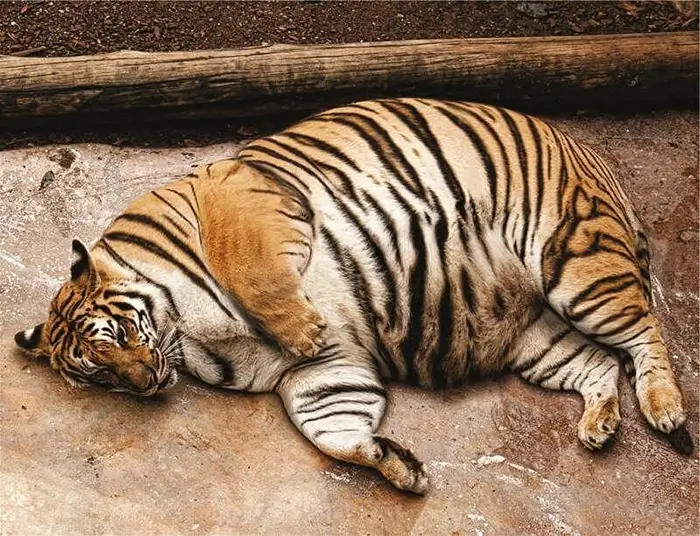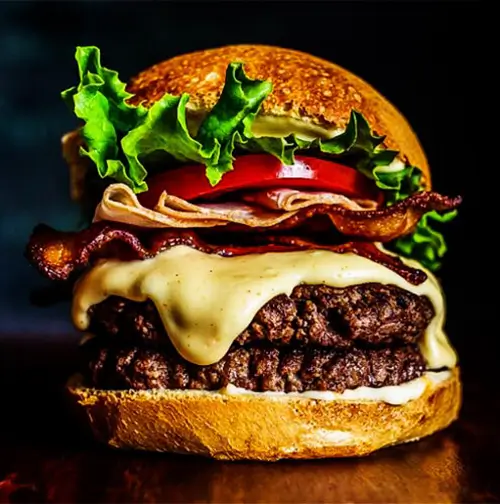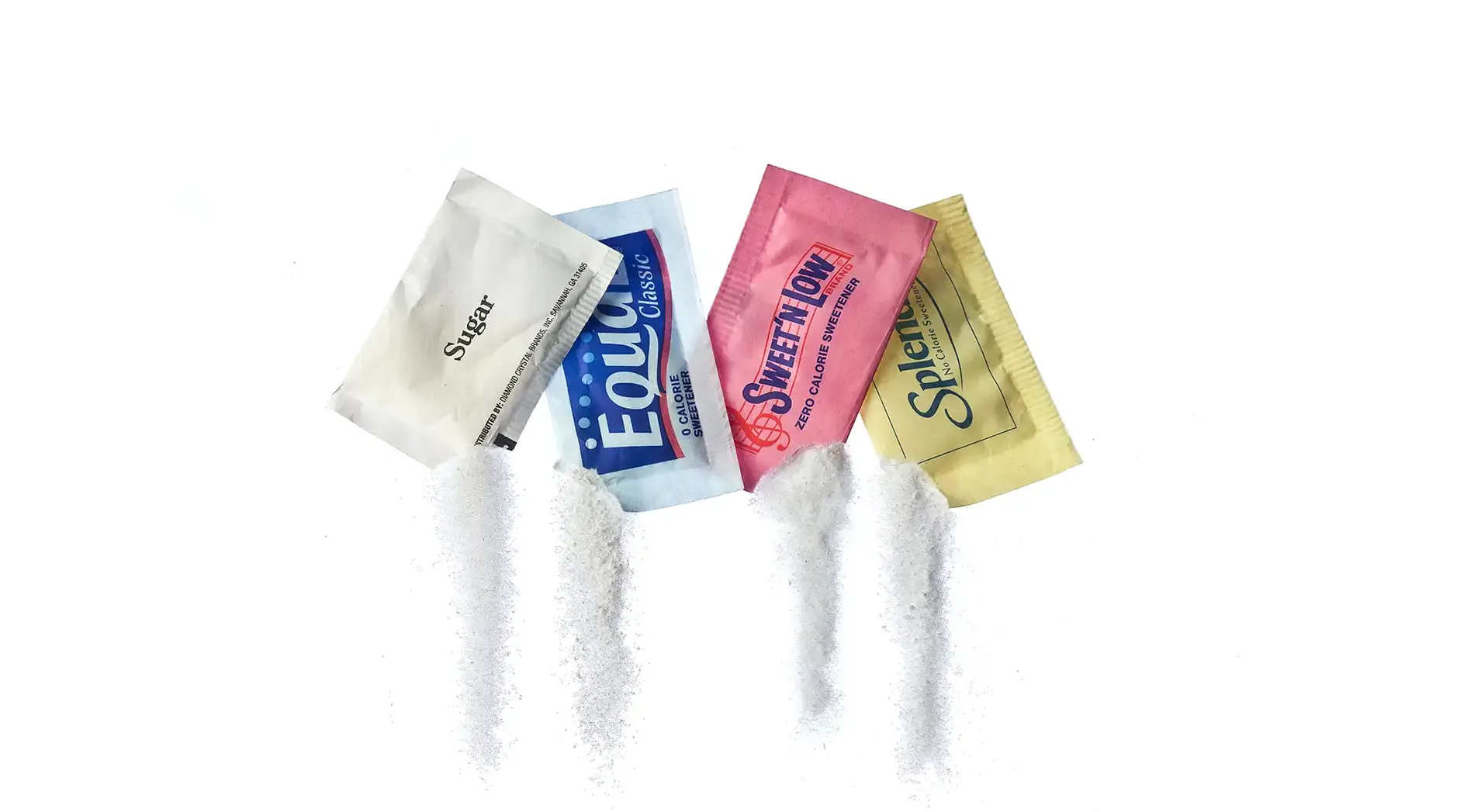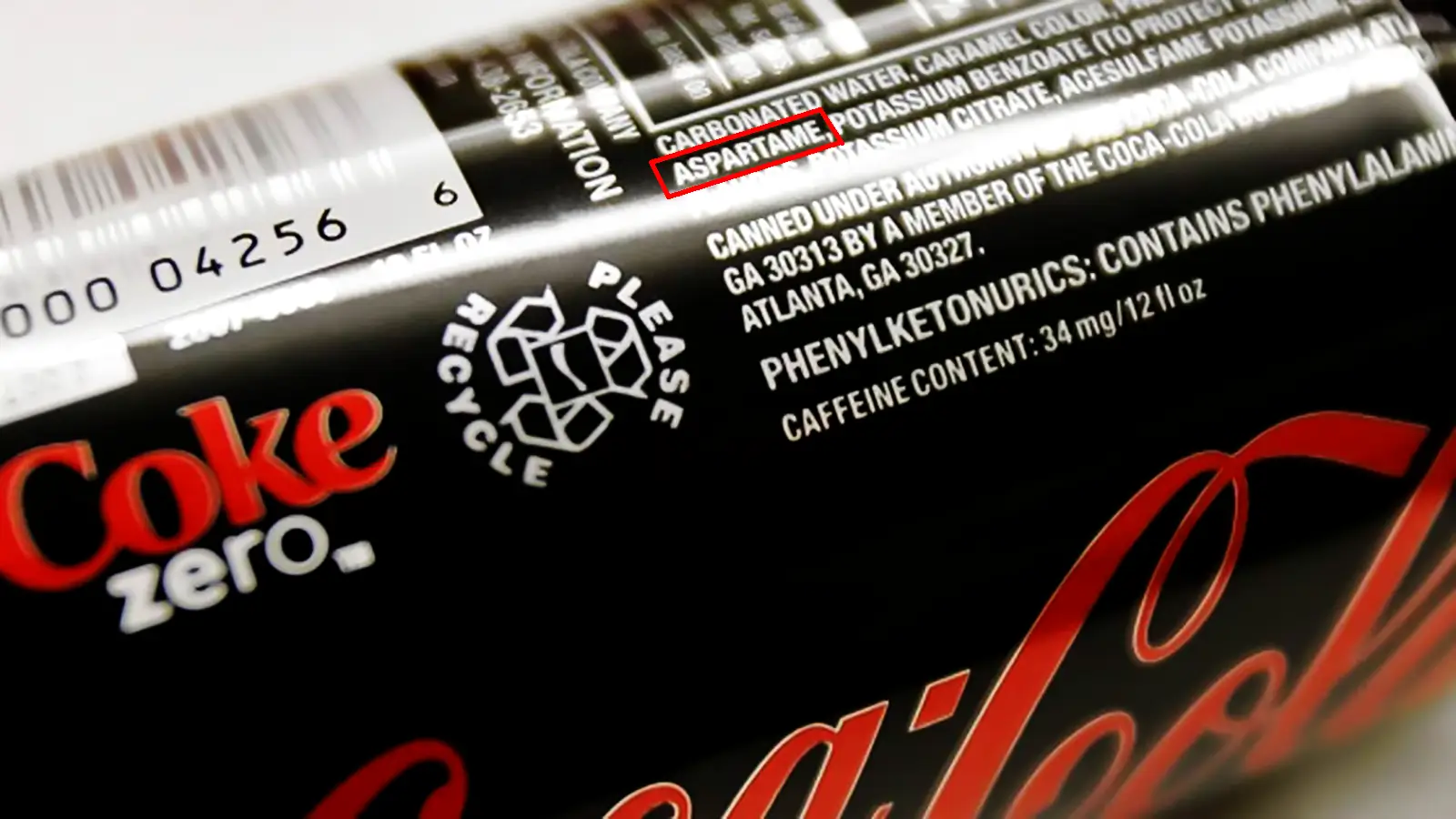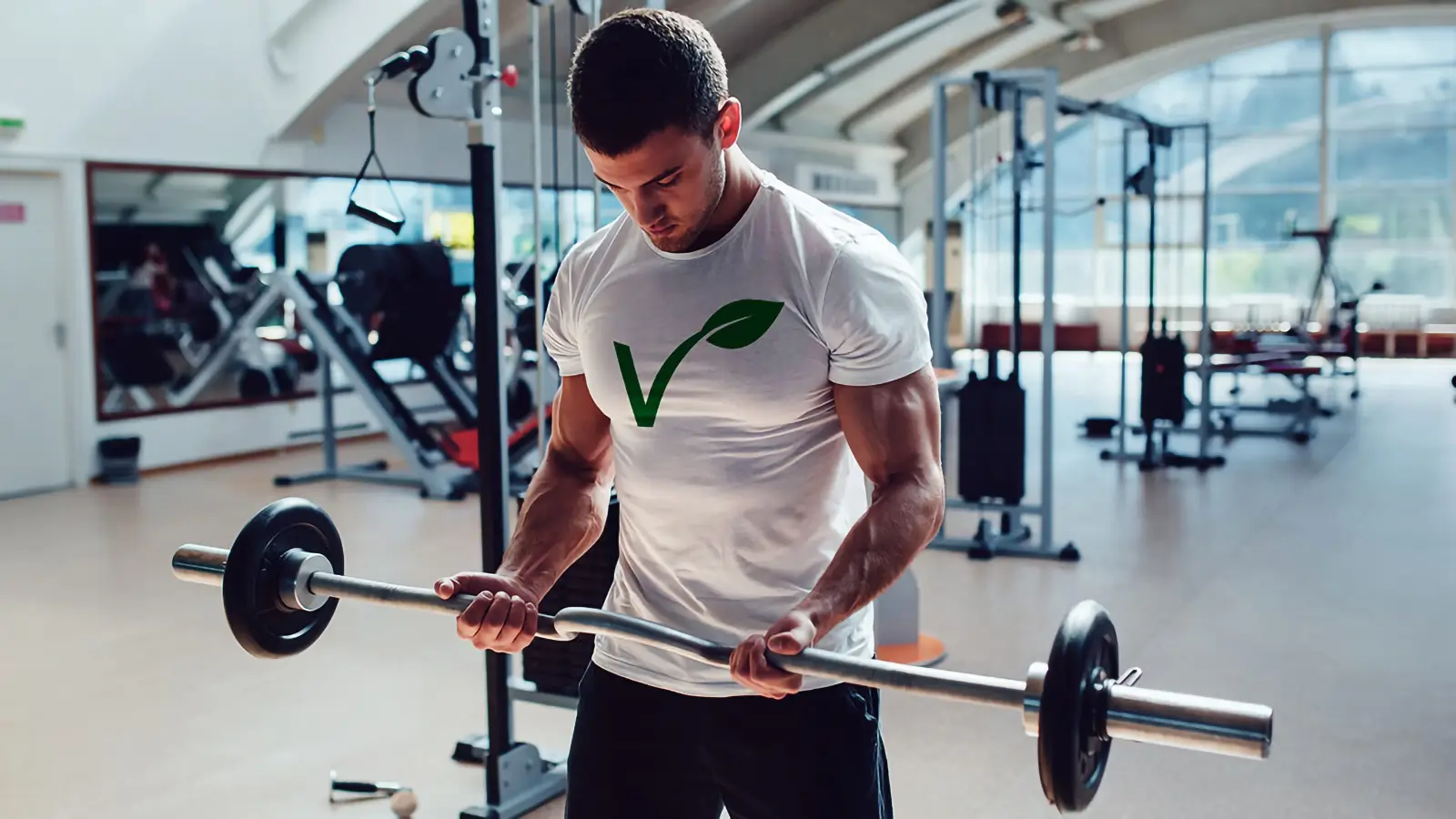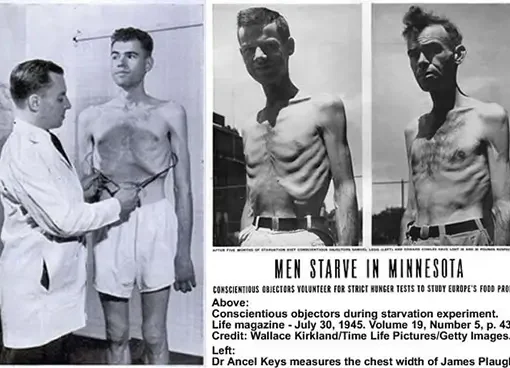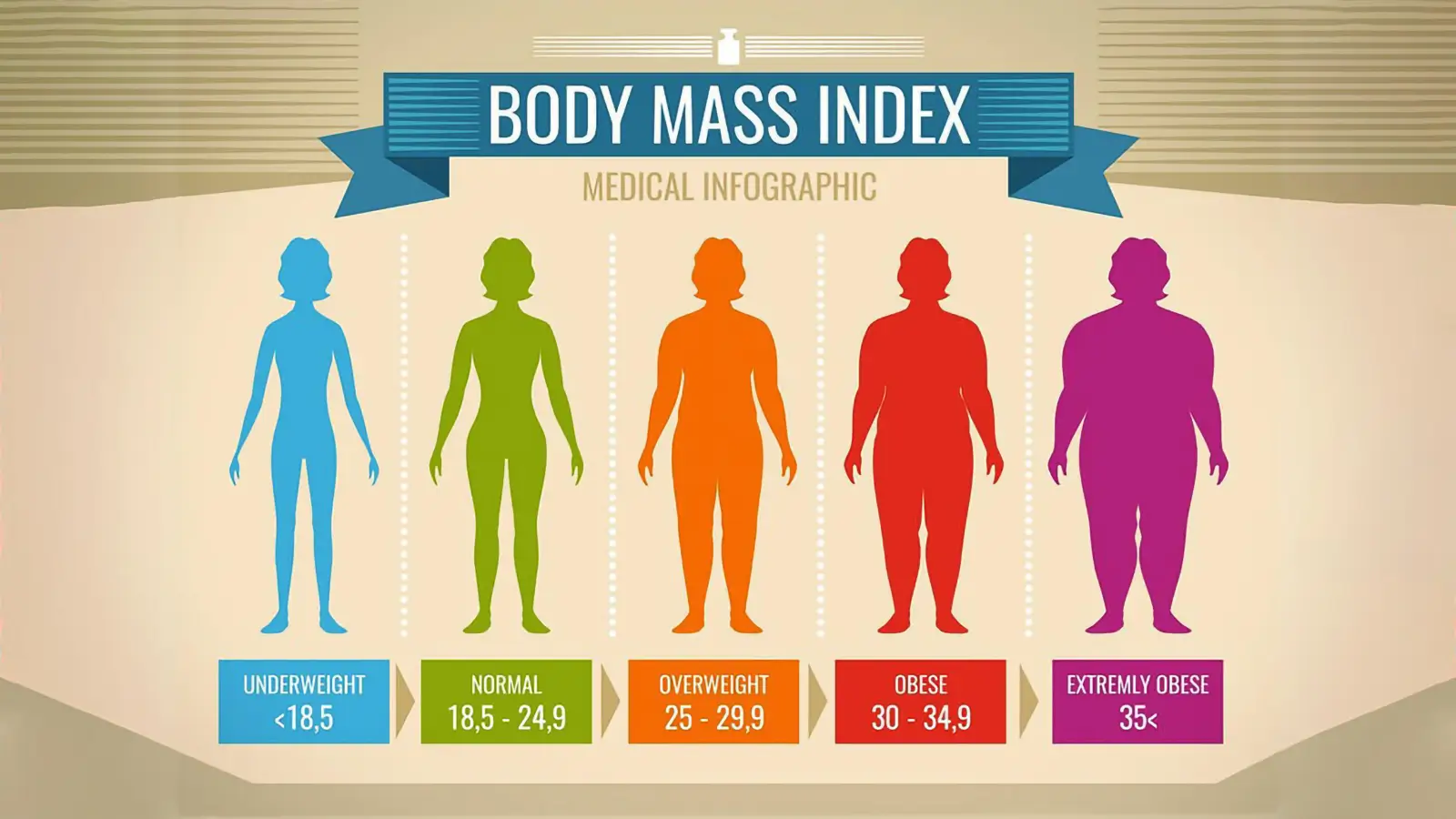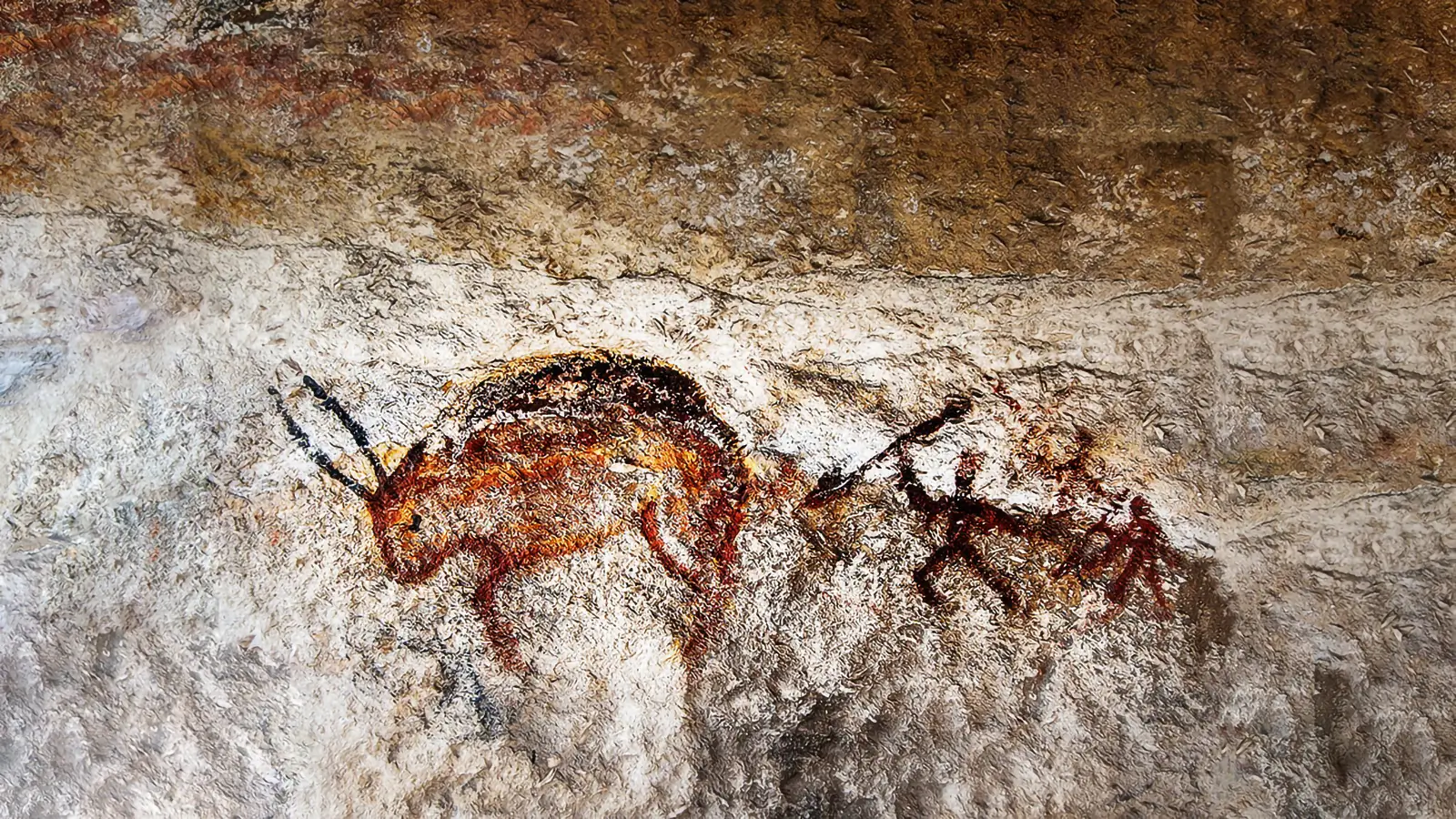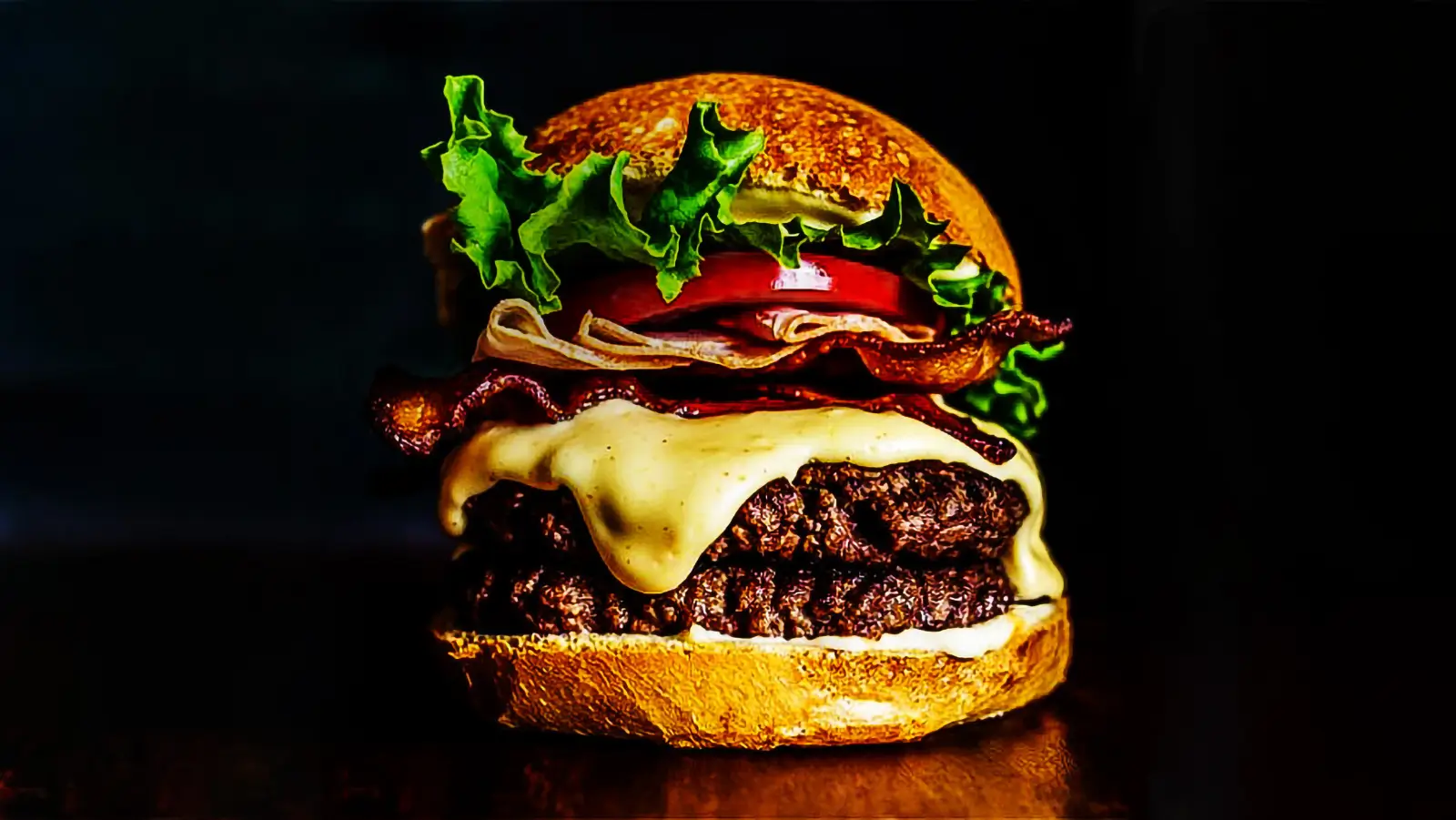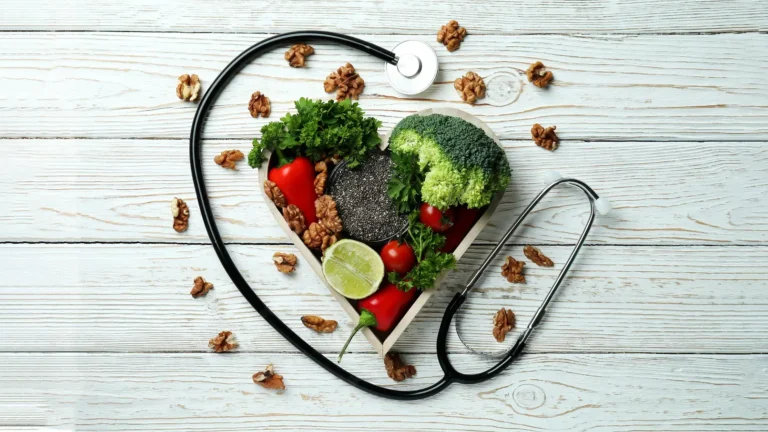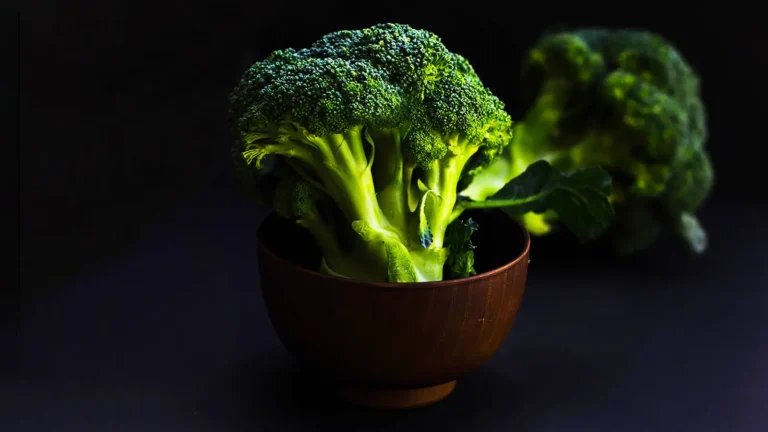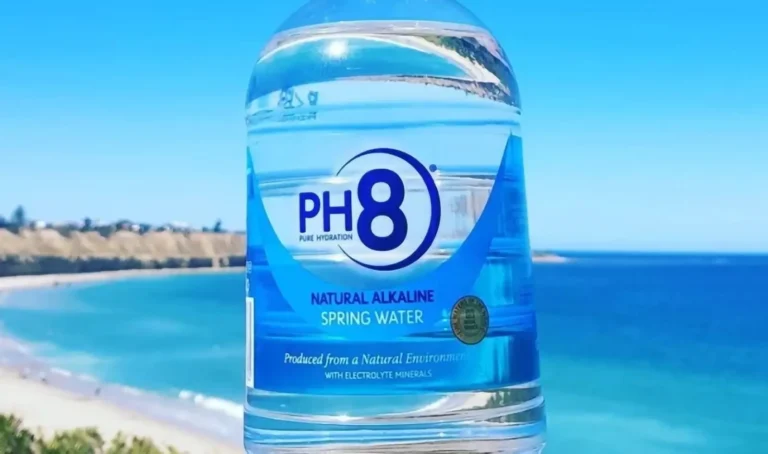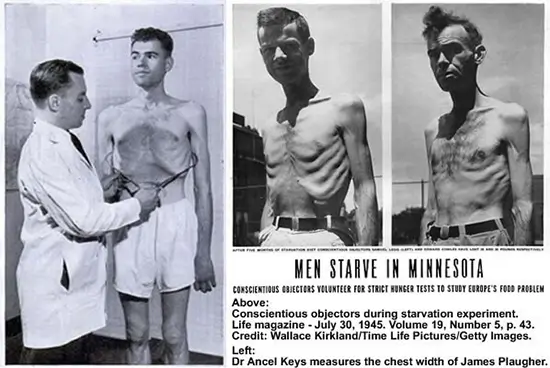Cause de l'obésité - Maladaptation ou Dépendance
Quelle est la cause de l'épidémie d'obésité? Pour toute vie sur Terre, la nourriture n'est pas un choix. La chose la plus difficile pour l'animal dans le désert est de prendre du poids.
Milos Pokimica
Écrit par : Milos Pokimica
Examiné Médicalement Par : Dr. Xiùying Wáng, M.D.
Mis à jour le 9 juin 2023Quelle est la cause de l'épidémie d'obésité ? L'épidémie d'obésité peut-elle être inversée si nous comprenons la cause de l'obésité ?
L'obésité est une maladie complexe qui se caractérise par un excès de graisse corporelle. L'obésité est plus qu'un simple problème esthétique. Il s'agit d'une condition médicale qui augmente le risque de développer d'autres maladies et problèmes de santé, tels que les maladies cardiaques, le diabète, l'hypertension artérielle et certaines maladies cardiovasculaires, cancers.
Certaines personnes ont du mal à perdre du poids pour diverses raisons, mais la principale est que notre cerveau agit de manière évolutive et protectrice. En d'autres termes, la cause de l'obésité est une mauvaise adaptation à notre environnement actuel. La rareté est la règle dans la nature et une surabondance de nourriture n'a jamais existé dans notre histoire longue de 50 millions.
Lorsque vous vous rendez dans une clinique spécialisée dans le traitement de l'obésité et que vous demandez quelle est la cause de l'obésité et ce que vous devez changer dans votre vie, vous n'obtenez pas de réponse décisive. La raison en est que la médecine allopathique conventionnelle fonctionne comme une pratique réductionniste. La cause de l'obésité est l'inadaptation, ce qui est une réponse décisive. Mais cette réponse nécessite une approche holistique et c'est une approche réductionniste que l'on trouve dans les hôpitaux. La médecine holistique n'a pas de brevet ou d'opération en cours, de sorte qu'il n'y a pas de profit pour payer les engagements de quelqu'un. C'est la raison pour laquelle ils ne vous disent pas toute la vérité sur la cause de l'épidémie d'obésité. Les médicaments sur ordonnance et les procédures de perte de poids sont des options supplémentaires pour traiter l'obésité qui rapportent beaucoup d'argent, en plus des suppléments et autres programmes, mais tous se souviennent qu'ils ne traitent pas la cause première de l'épidémie d'obésité. Vous pouvez perdre du poids, mais la condition qui vous a fait prendre du poids est toujours présente en tant que mécanisme de protection évolutionnaire et il y a très peu de choses que nous puissions faire pour y remédier.
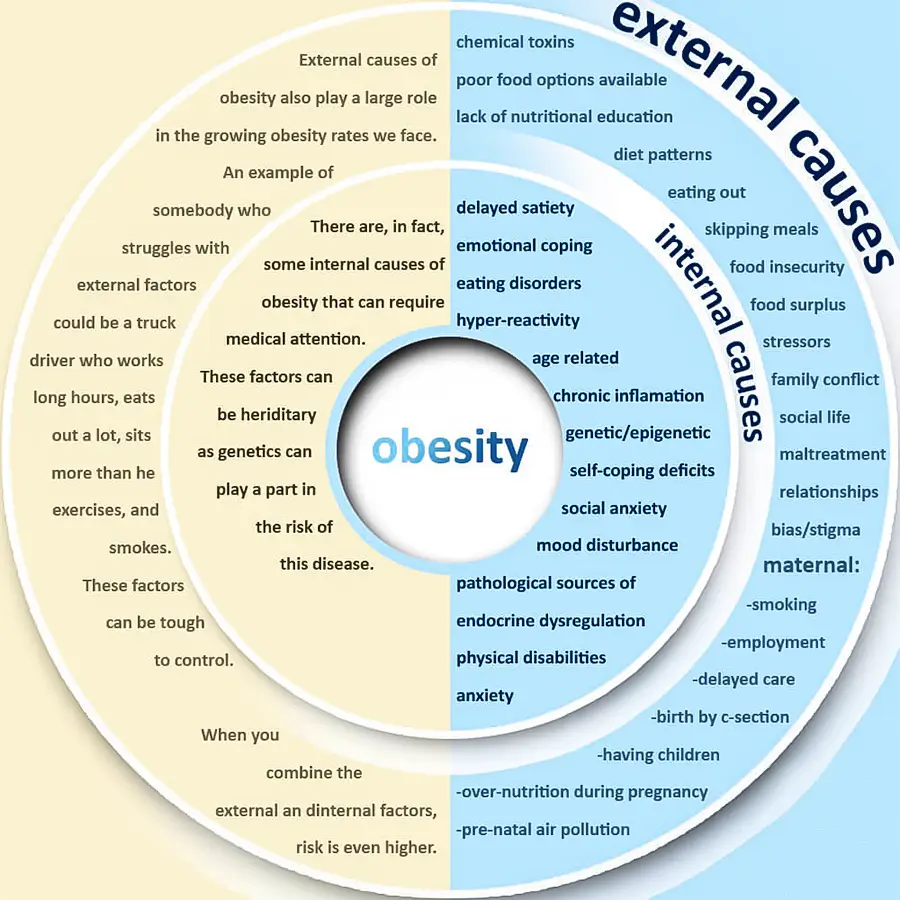
La cause de l'obésité est inscrite dans notre génome et dans celui de toutes les espèces de la planète. Toutes les espèces de la Terre deviendront obèses en cas d'abondance de nourriture, et pas seulement nos animaux domestiques. Les animaux comme les humains mangent autant qu'ils le peuvent chaque fois qu'ils le peuvent. Nous pouvons commencer à expliquer la cause de l'obésité de manière scientifique. Nous pouvons commencer à examiner les génomes et mener une série d'études, nous pouvons commencer à expérimenter différentes hormones et différents types d'aliments, puis nous pouvons mener une série d'études impliquant des substances neurochimiques et des signaux cérébraux. De cette manière, les études pourront peut-être nous donner une injection ou une pilule magique pour traiter cette condition, mais la cause de l'obésité reste un mécanisme complexe enraciné dans l'inadaptation.
La plupart des gens pensent à perdre du poids pour des raisons de sex-appeal. Les considérations de santé ne sont pas toujours la raison première d'un régime. Toutefois, dans les cas d'obésité morbide, lorsque le médecin dit aux patients de perdre du poids ou de mourir, les considérations de santé entrent en jeu et les patients essaient de perdre du poids. La majeure partie de la population totale devra, au cours de sa vie, suivre un régime pour une raison ou pour une autre. Dans la plupart des cas, les régimes ne donnent pas de résultats durables.
Mais pourquoi ? Quelle est la cause de l'obésité ? Voyons cela plus en détail.
Une adaptation évolutive est un caractère phénotypique héréditaire dont la fréquence d'apparition dans une population est le résultat d'un succès reproductif accru. L'adaptation est le développement que subit l'organisme pour s'habituer à un environnement. Elle est liée à l'évolution parce qu'il s'agit d'un long processus. Il se déroule sur plusieurs générations. C'est le changement génétique qui se produit.
Les habitats changent souvent. Par conséquent, le processus d'adaptation n'est jamais définitivement achevé. Avec le temps, il peut arriver que l'habitat change dans une certaine mesure et que les espèces s'adaptent de mieux en mieux à leur environnement.
Il peut également arriver que l'environnement change très peu et que les espèces n'aient pas besoin de s'adapter. On en trouve des exemples dans ce que l'on appelle les fossiles vivants, comme les méduses qui ont évolué il y a 550 millions d'années. Par ailleurs, des variations de l'habitat peuvent survenir presque immédiatement, entraînant une diminution de l'adaptation des espèces et leur extinction.
Qu'est-ce que l'adaptation évolutive a à voir avec notre alimentation et pourquoi est-ce important?
Nous devons comprendre comment les changements brusques de notre environnement causés par le progrès technologique et notre mode de vie moderne peuvent affecter notre biologie qui n'y est pas adaptée et comment cela peut affecter notre santé. Une autre solution serait d'agir de manière impulsive, émotionnelle et instinctive comme la plupart des autres animaux. C'est précisément ce que nous constatons lorsque nous nous rendons dans les hôpitaux et que nous consacrons la majeure partie de nos revenus aux bons services de la médecine moderne.
Les animaux mangent de manière impulsive parce qu'ils sont conditionnés à le faire pour survivre. Pour toutes les formes de vie sur la planète Terre, la nourriture n'est pas un choix. La chose la plus difficile pour un animal dans la nature est de prendre du poids. Le plus dur pour nous est de le perdre.
Et cela n'est dû qu'aux progrès technologiques réalisés au cours des deux derniers siècles. Ces progrès ont permis à notre génération actuelle de manger autant qu'elle le souhaite et quand elle le souhaite. Notre conception de l'alimentation a évolué et nous avons commencé à considérer la nourriture comme une source de gratification. Le problème est que si nous commençons à considérer la nourriture comme une source de gratification et à faire des choix alimentaires basés sur les sentiments et la satisfaction, que nous le voulions ou non, cela aura des conséquences sur la santé.
Pendant la majeure partie de notre évolution, nous étions minces dans un état de faim constante et d'activité physique constante, nus et mangeant principalement de la nourriture végétalienne.
La seule hypothèse raisonnable est que les hominines mangent comme n'importe quel autre animal. Cela signifie qu'ils ne mangent que lorsqu'ils trouvent de la nourriture. C'était le cas pour toutes les espèces de nos ancêtres, ce qui représente une période de 50 millions d'années. La faim, comme l'exercice, est une chose à laquelle notre physiologie est adaptée et à laquelle elle s'attend. Nous ne mourrons pas si nous ne mangeons pas. L'homo erectus n'avait pas de réfrigérateur où aller au milieu de la nuit lorsqu'il avait envie de manger. La faim est une sensation normale pour tous les animaux. L'être humain n'échappe pas à cette règle. Ce sentiment est si fort qu'il a la capacité de conditionner notre comportement et de l'emporter sur tout autre instinct. Elle doit être telle qu'elle peut forcer l'animal à la rechercher, faute de quoi il mourra. D'un autre côté, un sentiment de plénitude constant n'est pas naturel.
Même lorsque nous suivons un régime restrictif, l'homme moderne souhaite ressentir une sensation de satiété. D'où l'apparition de la caféine, des coupe-faim de toutes sortes, etc. Si seulement nous pouvions trouver un régime magique, à volonté, pour perdre du poids. Le conditionnement évolutif est si fort que dans de nombreux cas, après un régime, les gens peuvent développer une peur de la famine et lutter constamment pour ne pas trop manger, même s'ils n'ont pas faim. Nous sommes entourés de nourriture partout et, en plus, nous pouvons manger du sucre et des graisses sous une forme raffinée isolée que nous n'avons jamais pu trouver dans la nature, en nous donnant ce que l'on appelle des stimuli supranormaux ou en d'autres termes, dopamine alimentaire élevée.
D'un côté, il y a la famine et de l'autre, la libération non naturelle de dopamine déclenchée par des aliments non naturels auxquels nous n'avons jamais été exposés au cours de notre évolution. C'est ce qui cause un trouble de l'hyperphagie boulimique et l'obésité, 50 millions d'années de pénurie et la famine.
Où se situe le dysfonctionnement ? La cause du dilemme et de l'épidémie d'obésité reste entourée de complexité et de mystère. Une série d'essais cliniques ont quelque peu confirmé, et c'est aussi mon opinion personnelle, que les conditions d'obésité sont des "inadaptations" du mode de vie moderne actuel à notre génome (Fernandez-Real & Ricart 1999). En d'autres termes, la maladaptation est quelque chose qui se produit lors d'un changement brusque d'habitat auquel la physiologie n'est pas adaptée.
Dans le cas de l'obésité, le système de régulation standard indiquera au cerveau que nous avons des dépôts de graisse stockés pendant une période prolongée et que nous pouvons supporter une petite faim. Cependant, les hominines n'ont jamais pu grossir en raison de la pénurie, et n'ont donc jamais développé d'adaptation à l'abondance de nourriture. Notre esprit continue de penser que si nous ne mangeons pas tout ce que nous pouvons, nous mourrons de faim lors de la prochaine sécheresse.
Même notre conception de la beauté a changé. Je ne parle pas de ce que nous pensions être joli dans l'Égypte ou la Perse anciennes. Il s'agit d'une forme de civilisation agricole moderne avec des structures sociétales. Avant la civilisation et l'agriculture de la période paléo et au-delà, les chasseurs-paysans idéalisaient l'obésité morbide. Nous pouvons en voir un exemple physique dans les figurines de Vénus à l'obésité morbide qui ont été trouvées à différents endroits de la période Paléo.
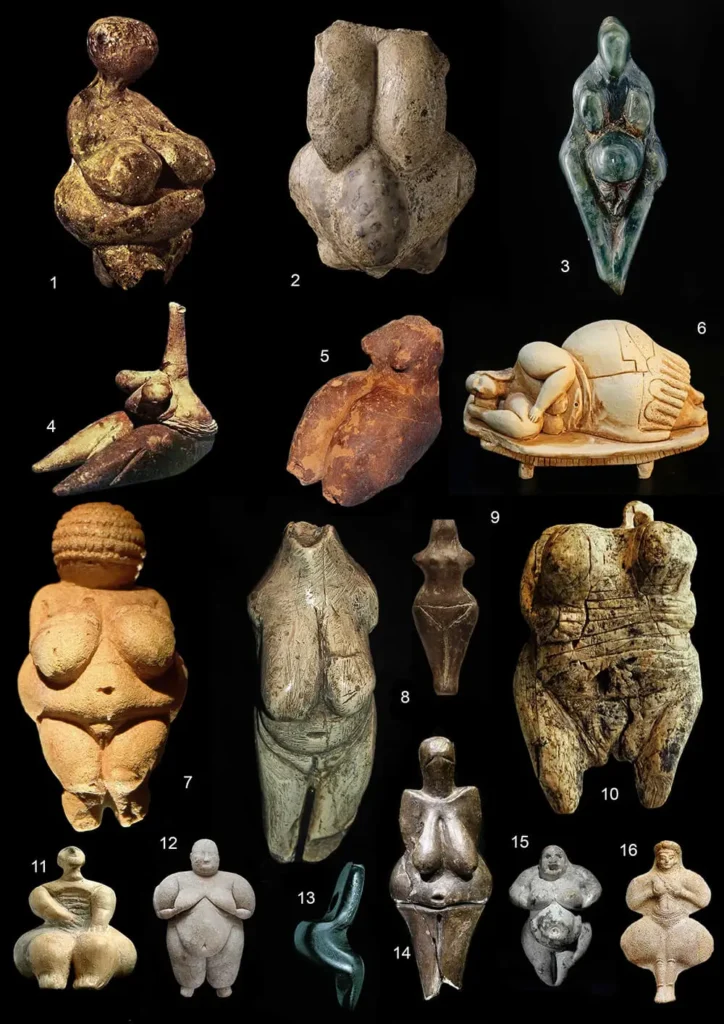
Parce qu'il n'y a jamais eu d'abondance de nourriture et que pendant toute leur vie à l'époque paléo, avant et pendant toute notre évolution, il y a eu pénurie, le concept d'obésité morbide n'était rien d'autre qu'une fiction idolâtrée. Un conte de fées d'une vie sans famine. Nous devons comprendre la différence entre la recherche de nourriture, la chasse et la cueillette et l'agriculture, puis les sociétés agricoles et nos sociétés industrielles modernes sont importantes. Elles sont énormes du point de vue de la biologie de l'évolution. Tout était une question de survie.
La femelle maigre et mal nourrie était en danger si elle tombait enceinte. Vivre dans la nature peut sembler romantique aujourd'hui, mais pour nos ancêtres, c'était un cauchemar permanent avec une espérance de vie moyenne de 25 ans. À l'ère glaciaire, en Europe, pendant l'hiver (la dernière période glaciaire, il y a 110 000 à 11 700 ans), une femme enceinte souffrant de malnutrition rencontrait de nombreux problèmes. L'obésité morbide est un symbole de fertilité ou un symbole de grossesse réussie et un symbole de la vie elle-même. Nos grands-parents paléo ne comprenaient pas tout l'éventail du fonctionnement des principes biologiques, mais ils comprenaient à coup sûr le rôle du tissu adipeux dans la survie. C'était leur mode de vie depuis que nos ancêtres ont quitté l'Afrique et sont entrés dans des climats plus froids, et même en Afrique, les sources de nourriture n'étaient pas surabondantes. Dans la neige, la glace et les grottes, avec une faim constante et d'autres hominines en compétition pour la nourriture, c'était le pire des scénarios. C'est pourquoi on peut voir des figurines de Vénus souffrant d'obésité morbide.
Après la révolution néolithique, tout a changé rapidement. Les premières grandes villes et les premières hiérarchies sociétales sont apparues. Le concept de fertilité s'est également modifié partout. Les déesses sont devenues plus minces, les histoires se sont transformées en religion et se sont transformées en culture.
Manger sainement ne signifie toujours pas que nous allons passer outre notre faim. Il n'y a pas de remède magique pour la signalisation de survie, sauf pour les médicaments puissants. Manger sainement peut encore nous rendre obèses. Le régime alimentaire sain n'est que celui que nous avons développé et adapté à l'alimentation. C'est ça. Ce n'est pas un régime restrictif.
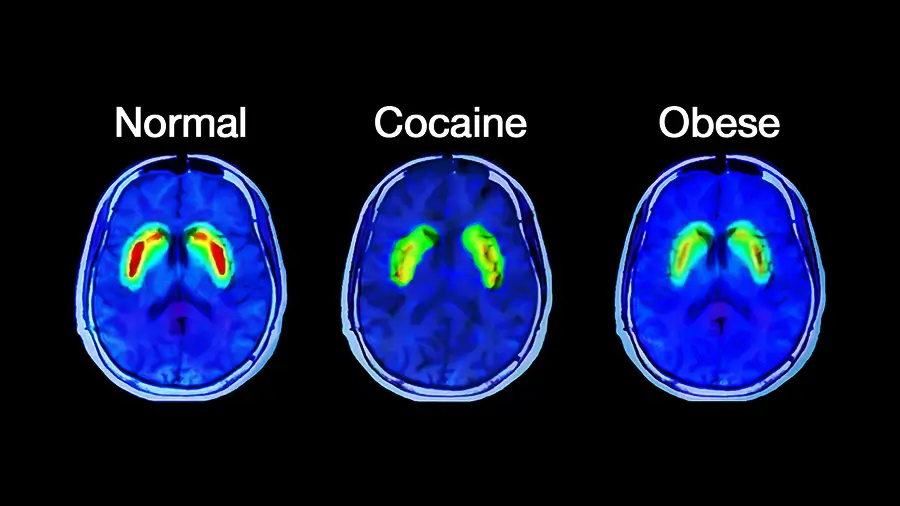
Ce n'est pas non plus le régime le plus savoureux. Dans la nature, il y a pénurie, donc le goût existe comme une récompense, pas comme un thème commun à chaque repas.
Pour chaque animal existant dans la nature, la faim est l'état normal de l'être. Alternativement, une lutte constante pour la nourriture serait plus précise. Pour chaque animal qui vit sur cette planète, l'obsession alimentaire est un travail de jour. La plupart du temps au cours de leur vie, les animaux passent la recherche de nourriture. Il n'y a pas de supermarchés et de boîtes de plats cuisinés. C'est une lutte. De plus, c'était une condition normale pour les humains, même aujourd'hui. Eh bien, au moins la partie physiologie du corps.
Ce sont nos désirs et notre recherche du plaisir qui nous rendent malades. L'évolution n'a pas prédit l'électricité, les puces électroniques et les voitures. Nous sommes inadaptés à notre habitat. Nous avons mis en évidence des mécanismes qui nous obligent à agir d'une manière évolutivement protectrice, comme la surconsommation d'aliments. L'obstacle qui n'est pas si unique aujourd'hui, c'est qu'il n'y a plus de pénurie.
Références :
Passages sélectionnés à partir d'un livre : Pokimica, Milos. Devenir vegetarien? Examen de la science, partie 1. Kindle éd., Amazone, 2018.
- Anderberg, Rozita H et al. "La ghréline, une hormone dérivée de l'estomac, augmente le comportement impulsif." Neuropsychopharmacologie : publication officielle de l'American College of Neuropsychopharmacology vol. 41,5 (2016): 1199-209. doi:10.1038/npp.2015.297
- Al Massadi, Omar et al. "Ghréline et récompense alimentaire." Neuropharmacologie vol. 148 (2019): 131-138. doi:10.1016/j.neuropharm.2019.01.001
- Johnson, Paul M et Paul J Kenny. "Récepteurs de la dopamine D2 dans le dysfonctionnement de la récompense de type dépendance et l'alimentation compulsive chez les rats obèses." Neurosciences de la nature vol. 13,5 (2010): 635-41. doi:10.1038/nn.2519
- Palmiter, Richard D. « La dopamine est-elle un médiateur physiologiquement pertinent du comportement alimentaire ? » Tendances en neurosciences vol. 30,8 (2007): 375-81. doi:10.1016/j.tins.2007.06.004
- Obradovic, Milan et al. "Leptine et obésité: rôle et implication clinique." Frontières en endocrinologie vol. 12 585887. 18 mai. 2021, doi:10.3389/fendo.2021.585887
- Crujeiras, Ana B et al. "Résistance à la leptine dans l'obésité: un paysage épigénétique." Sciences de la vie vol. 140 (2015): 57-63. doi:10.1016/j.lfs.2015.05.003
- Peng, Jin et al. "Résistance centrale et périphérique à la leptine dans l'obésité et amélioration de l'exercice." Hormones et comportement vol. 133 (2021): 105006. doi:10.1016/j.yhbeh.2021.105006
Articles Similaires
Vous avez des questions sur la nutrition et la santé ?
J'aimerais avoir de vos nouvelles et y répondre dans mon prochain post. J'apprécie votre contribution et votre opinion et j'ai hâte d'avoir de vos nouvelles bientôt. Je vous invite également à nous suivre sur Facebook, Instagram et Pinterest pour plus de contenu sur l'alimentation, la nutrition et la santé. Vous pouvez y laisser un commentaire et entrer en contact avec d'autres passionnés de santé, partager vos conseils et expériences, et obtenir le soutien et les encouragements de notre équipe et de notre communauté.
J'espère que ce billet a été instructif et agréable pour vous et que vous êtes prêt à mettre en pratique les connaissances que vous avez acquises. Si vous avez trouvé ce billet utile, veuillez le partager à vos amis et à votre famille qui pourraient également en bénéficier. On ne sait jamais qui peut avoir besoin de conseils et de soutien dans son parcours de santé.
– Vous pourriez aussi aimer –

Apprendre la Nutrition
Milos Pokimica est docteur en médecine naturelle, nutritionniste clinique, rédacteur en santé médicale et nutrition et conseiller en sciences nutritionnelles. Auteur de la série de livres Devenir vegetarien ? Examen des sciences, il exploite également le site Web de santé naturelle GoVeganWay.com
Avis de non-responsabilité médicale
GoVeganWay.com vous propose des critiques des dernières recherches liées à la nutrition et à la santé. Les informations fournies représentent l'opinion personnelle de l'auteur et ne sont pas destinées ni implicitement à remplacer un avis médical professionnel, un diagnostic ou un traitement. Les informations fournies sont fournies à titre informatif uniquement et ne sont pas destinées à remplacer la consultation, le diagnostic et/ou le traitement médical d'un médecin ou d'un prestataire de soins de santé qualifié.NE JAMAIS IGNORER LES CONSEILS MÉDICAUX PROFESSIONNELS OU RETARDER LA RECHERCHE DE SOINS MÉDICAUX EN RAISON DE QUELQUE CHOSE QUE VOUS AVEZ LU OU ACCÉDÉ SUR GoVeganWay.com
N'APPLIQUEZ JAMAIS DE CHANGEMENTS AU STYLE DE VIE OU TOUT CHANGEMENT À LA SUITE DE QUELQUE CHOSE QUE VOUS AVEZ LU SUR GoVeganWay.com AVANT DE CONSULTER UN PRATICIEN MÉDICAL AGRÉÉ.
En cas d'urgence médicale, appelez immédiatement un médecin ou le 911. GoVeganWay.com ne recommande ni n'approuve aucun groupe, organisation, test, médecin, produit, procédure, opinion ou autre information spécifique pouvant être mentionné à l'intérieur.
Choix de l'éditeur -
Milos Pokimica est rédacteur spécialisé dans la santé et la nutrition et conseiller en sciences nutritionnelles. Auteur d'une série de livres Devenir vegetarien ? Examen des sciences, il exploite également le site Web de santé naturelle GoVeganWay.com
Derniers articles –
Top Des Nouvelles Sur la Santé - ScienceDaily
- The overlooked nutrition risk of Ozempic and Wegovyle février 4, 2026
Popular weight-loss drugs like Ozempic and Wegovy can dramatically curb appetite, but experts warn many users are flying blind when it comes to nutrition. New research suggests people taking these medications may not be getting enough guidance on protein, vitamins, and overall diet quality, increasing the risk of muscle loss and nutrient deficiencies.
- A 25-year study found an unexpected link between cheese and dementiale février 4, 2026
A massive Swedish study tracking nearly 28,000 people for 25 years found an unexpected link between full-fat dairy and brain health. Among adults without a genetic risk for Alzheimer’s, eating more full-fat cheese was associated with a noticeably lower risk of developing the disease, while higher cream intake was tied to reduced dementia risk overall. The findings challenge decades of low-fat dietary advice but come with important caveats.
- MIT’s new brain tool could finally explain consciousnessle février 4, 2026
Scientists still don’t know how the brain turns physical activity into thoughts, feelings, and awareness—but a powerful new tool may help crack the mystery. Researchers at MIT are exploring transcranial focused ultrasound, a noninvasive technology that can precisely stimulate deep regions of the brain that were previously off-limits. In a new “roadmap” paper, they explain how this method could finally let scientists test cause-and-effect in consciousness research, not just observe […]
- Why heart disease risk in type 2 diabetes looks different for men and womenle février 4, 2026
Scientists are digging into why heart disease risk in type 2 diabetes differs between men and women—and sex hormones may be part of the story. In a large Johns Hopkins study, men with higher testosterone had lower heart disease risk, while rising estradiol levels were linked to higher risk. These hormone effects were not seen in women. The results point toward more personalized approaches to heart disease prevention in diabetes.
- Sound machines might be making your sleep worsele février 4, 2026
Sound machines may not be the sleep saviors many believe. Researchers found that pink noise significantly reduced REM sleep, while simple earplugs did a better job protecting deep, restorative sleep from traffic noise. When pink noise was combined with outside noise, sleep quality dropped even further. The results suggest that popular “sleep sounds” could be doing more harm than good—particularly for kids.
- This unexpected plant discovery could change how drugs are madele février 3, 2026
Plants make chemical weapons to protect themselves, and many of these compounds have become vital to human medicine. Researchers found that one powerful plant chemical is produced using a gene that looks surprisingly bacterial. This suggests plants reuse microbial tools to invent new chemistry. The insight could help scientists discover new drugs and produce them more sustainably.
- A hidden cellular process may drive aging and diseasele février 3, 2026
As we age, our cells don’t just wear down—they reorganize. Researchers found that cells actively remodel a key structure called the endoplasmic reticulum, reducing protein-producing regions while preserving fat-related ones. This process, driven by ER-phagy, is tied to lifespan and healthy aging. Because these changes happen early, they could help trigger later disease—or offer a chance to stop it.
PubMed, #régime-vegan –
- Diet type and the oral microbiomele février 2, 2026
CONCLUSION: The diet-oral microbiome-systemic inflammation axis is bidirectional and clinically relevant. Understanding both direct ecological regulation and indirect metabolic effects is essential to support precision nutrition strategies aimed at maintaining oral microbial balance and systemic inflammatory risk mitigation.
- Consensus document on healthy lifestylesle janvier 22, 2026
Proteins are a group of macronutrients that are vital to our lives, as they perform various functions, including structural, defensive and catalytic. An intake of 1.0-1.2 g/kg/body weight per day would be sufficient to meet our needs. Carbohydrate requirements constitute 50 % of the total caloric value and should be obtained mainly in the form of complex carbohydrates. In addition, a daily intake of both soluble and insoluble fiber is necessary. Regular consumption of extra virgin olive oil […]
- Vitamin B12 and D status in long-term vegetarians: Impact of diet duration and subtypes in Beijing, Chinale janvier 21, 2026
CONCLUSIONS: This study reveals a dual challenge among Beijing long-term vegetarians: vitamin B12 deficiency was strongly associated with the degree of exclusion of animal products from the diet (veganism), while vitamin D deficiency was highly prevalent and worsened with longer diet duration. The near-universal vitamin D deficiency observed in this study suggests that, in the Beijing context, the risk may extend beyond dietary choice, potentially reflecting regional environmental factors;…
- Nutritional evaluation of duty meals provided to riot police forces in Germanyle janvier 13, 2026
Background: The primary role of the German riot police is maintaining internal security. Due to challenging working conditions, riot police forces face an elevated risk of various diseases. During duty, forces are provided with meals. A balanced diet can reduce the risk of some of these diseases and contribute to health-promoting working conditions. Aim: First evaluation of the nutritional quality of duty meals in Germany based on German Nutrition Society recommendations (DGE). Methods: In…
- Iodinele janvier 1, 2006
Iodine is an essential trace nutrient for all infants that is a normal component of breastmilk. Infant requirements are estimated to be 15 mcg/kg daily in full-term infants and 30 mcg/kg daily in preterm infants.[1] Breastmilk iodine concentration correlates well with maternal urinary iodine concentration and may be a useful index of iodine sufficiency in infants under 2 years of age, but there is no clear agreement on a value that indicates iodine sufficiency, and may not correlate with […]
Messages aléatoires –
Postes en vedette -
Dernières Nouvelles de PubMed, #alimentation végétale –
- From paddy soil to dining table: biological biofortification of rice with zincpar Lei Huang le février 4, 2026
One-third of paddy soils are globally deficient in zinc (Zn) and 40% of Zn loss in the procession from brown rice to polished rice, which results in the global issue of hidden hunger, e.g., the micronutrient deficiencies in the rice-based population of developing countries. In the recent decades, biofortification of cereal food crops with Zn has emerged as a promising solution. Herein, we comprehensively reviewed the entire process of Zn in paddy soil to human diet, including the regulatory…
- Molecular Characterization of Tobacco Necrosis Virus A Variants Identified in Sugarbeet Rootspar Alyssa Flobinus le février 3, 2026
Sugarbeet provides an important source of sucrose; a stable, environmentally safe, and low-cost staple in the human diet. Viral diseases arising in sugarbeet ultimately impact sugar content, which translates to financial losses for growers. To manage diseases and prevent such losses from occurring, it is essential to characterize viruses responsible for disease. Recently, our laboratory identified a tobacco necrosis virus A variant named Beta vulgaris alphanecrovirus 1 (BvANV-1) in sugarbeet…
- Nutrition in early life interacts with genetic risk to influence preadult behaviour in the Raine Studypar Lars Meinertz Byg le février 3, 2026
CONCLUSIONS: Nutrition in early life and psychiatric genetic risk may interact to determine lasting child behaviour. Contrary to our hypothesis, we find dietary benefits in individuals with lower ADHD PGS, necessitating replication. We also highlight the possibility of including genetics in early nutrition intervention trials for causal inference.
- Effect of the gut microbiota on insect reproduction: mechanisms and biotechnological prospectspar Dilawar Abbas le février 2, 2026
The insect gut microbiota functions as a multifunctional symbiotic system that plays a central role in host reproduction. Through the production of bioactive metabolites, gut microbes interact with host hormonal pathways, immune signaling, and molecular regulatory networks, thereby shaping reproductive physiology and fitness. This review summarizes recent advances in understanding how gut microbiota regulate insect reproduction. Accumulating evidence demonstrates that microbial metabolites…
- Rationale and design of a parallel randomised trial of a plant-based intensive lifestyle intervention for diabetes remission: The REmission of diabetes using a PlAnt-based weight loss InteRvention…par Brighid McKay le février 2, 2026
CONCLUSIONS: This trial will provide high-quality clinical evidence on the use of plant-based ILIs to address the epidemics of obesity and diabetes to inform public health policies and programs in Canada and beyond.
- Diet type and the oral microbiomepar Daniel Betancur le février 2, 2026
CONCLUSION: The diet-oral microbiome-systemic inflammation axis is bidirectional and clinically relevant. Understanding both direct ecological regulation and indirect metabolic effects is essential to support precision nutrition strategies aimed at maintaining oral microbial balance and systemic inflammatory risk mitigation.
